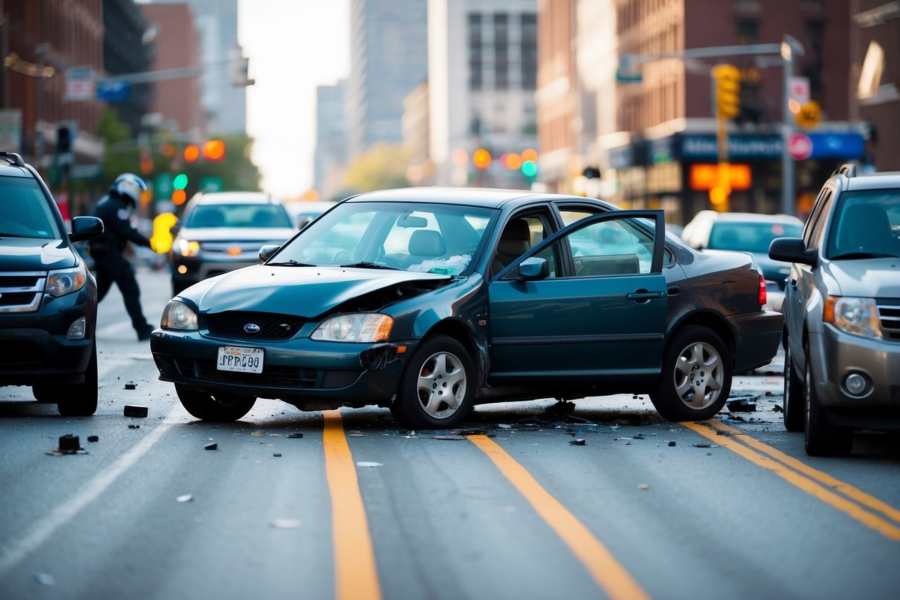When a college student gets into a car accident, parents or guardians often wonder about their potential liability. Generally, liability may depend on various factors, including the student’s age, ownership of the vehicle, and the circumstances of the accident. Understanding these elements can be crucial for parents concerned about how to handle an on-campus car accident.
In many cases, if a student is still a dependent and under the age of 18, the parents may face greater liability due to their legal obligation to supervise their child. Conversely, if the student is over 18 and owns the vehicle, they are typically responsible for their actions, separating the liability from their parents.
Legal nuances exist, particularly regarding insurance coverage and applicable state laws. Knowledge of these factors can empower parents to make informed decisions and potentially mitigate their liability in such situations.
Understanding Liability in College Student Car Accidents
Liability in college student car accidents hinges on various factors, including parental responsibility, insurance coverage, and the concept of negligence. Each of these aspects affects the potential outcomes when an accident occurs.
Parental Responsibility and Car Ownership
Parents may bear some responsibility for their college student’s actions while driving, particularly if they own the vehicle. In many jurisdictions, parents can be held liable for damages if their child causes an accident. This liability may stem from the legal doctrine of vicarious liability, which holds vehicle owners accountable for incidents involving their car.
If a student drives their parents’ vehicle, the parents’ insurance may cover the damages. Additionally, if a parent has lent a vehicle to their child, they should ensure that the student understands safe driving practices. This education can help mitigate the risk of accidents, potentially reducing liability.
Insurance Considerations for College Students
College students are often covered under their parents’ auto insurance policies while living away from home. However, students should confirm that their coverage extends to accidents that may occur on campus or when driving off campus.
For students who own their vehicles, obtaining a separate policy is advisable. Factors such as the student’s driving history and location (on-campus or off-campus) can influence insurance rates. It’s crucial for students to communicate with their insurance providers regarding coverage limitations and requirements to avoid gaps in protection.
The Role of Negligence in Car Accidents
Negligence is a key factor in determining liability in car accidents. If a college student is found negligent—by texting while driving, speeding, or failing to yield—they may be held responsible for any damages incurred.
In the case of on-campus accidents, the college may also investigate circumstances surrounding the incident. The findings can impact liability, especially if campus regulations were violated. In any situation, documenting the accident scene and collecting witness statements can help establish facts and clarify responsibilities, aiding in resolution efforts.
Legal Steps Following a College Student’s Car Accident
When a college student is involved in a car accident, it is crucial to take specific legal steps to ensure proper handling of the situation. This includes gathering necessary evidence, understanding the claims process, and seeking professional legal counsel.
Gathering Evidence and Documentation
Immediately following the accident, gathering evidence is critical. This can include:
Photographs: Capture images of the scene, vehicle damage, and any visible injuries.
Witness Statements: Collect contact information and statements from witnesses present at the scene.
Police Report: Obtain a copy of the police report which documents the accident details.
In campus-related incidents, such as those occurring on university property, it may be necessary to report the accident to campus security. Having a comprehensive record will aid in any future claims or disputes.
Understanding the Claims Process
Navigating the claims process can be complex. It typically involves:
Insurance Notification: Notify the student’s insurance company as soon as possible. They will require all relevant details about the accident.
Claim Submission: Submit a claim with the necessary documentation, including photographs, witness statements, and police reports.
Follow-Up: Keep in contact with the insurance adjuster to ensure all documentation is received and to answer any questions.
Being proactive in understanding this process can facilitate quicker resolutions and ensure that proper procedures are followed for any potential compensation.
Seeking Legal Counsel
Involving an attorney can provide valuable guidance. A lawyer specializing in car accidents can help in several ways:
Legal Advice: They can offer advice on liability issues and ensure that the student’s rights are protected.
Negotiation Support: An attorney experienced in handling insurance claims can negotiate on behalf of the student.
Court Representation: If the case goes to court, having legal representation can significantly impact the outcome.
Selecting an attorney with relevant experience in car accidents, especially those occurring on campus, is crucial for navigating the legal complexities involved.


